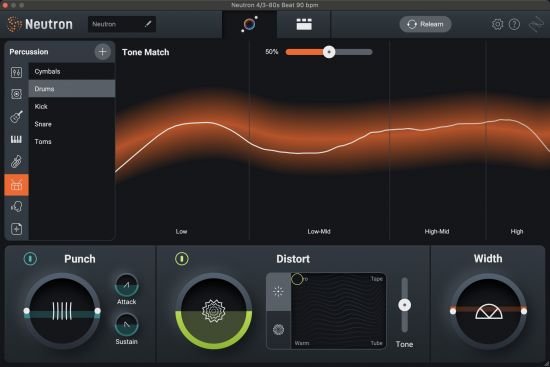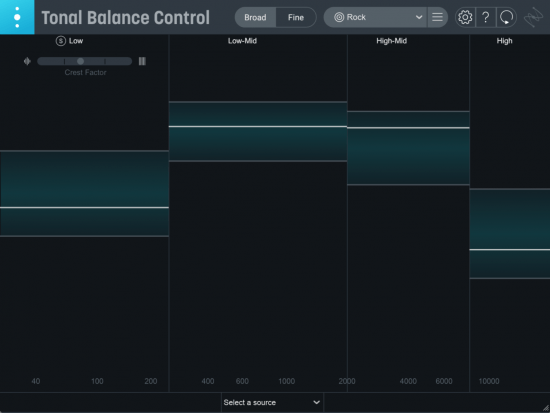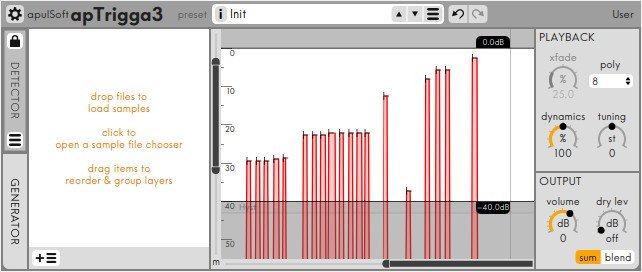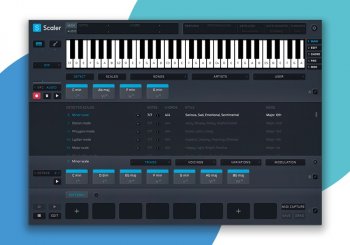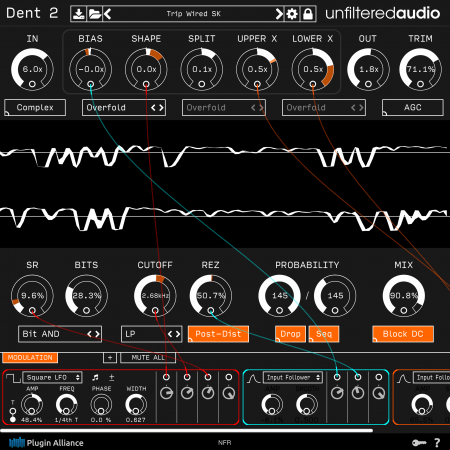
TeamCubeadooby | x64: VST3, VST2, .aaxplugin – x86: JBridge Files | 6.0 MB
是时候让你的声音更深了——更深。当然,你已经让你的曲目听起来不错——平衡了电平,添加了恰到好处的均衡器——也许你甚至演奏了所有的音乐。但这仅仅是开始。你想进入这些波形,修补和探索,实现你的音轨的潜力,并画出只存在于你耳朵之间的声音。是时候了解 Dent 2 了。
最初的 Dent 是一种不同类型的失真插件,由 Unfiltered Audio 为每一位渴望在分子水平上操纵波形的工程师和声音设计师制作。现在,随着 Dent 2 的发布,音频控制狂们欢欣鼓舞,因为 Unfiltered Audio 已经成为亚原子。我们正在谈论让我们在负半波控制级别上锐化峰值!因此,如果您正在寻找甜蜜的模拟硬件仿真,您最好去别处寻找,因为 Unfiltered 的疯狂科学家的核心是数字化的,他们确切地知道如何将这些 1 和 0 变成魔法。
当它到达 Dent 2 时,您的音频首先会遇到插件的样本减少引擎,该引擎可自由调整和高度可定制。接下来,信号会依次通过多达三种不同类型的失真,这些失真可以从十种独特的削波算法中进行选择。在这些增益级中,用户可以添加或减去 DC 偏置,通过平整或锐化波形来调整波形的形状,并独立调整波形的正半部分和负半部分。接下来是比特率引擎,它是一个连续且可自动化的参数,具有六种不同的比特粉碎算法。最后,音频通过四种不同的谐振滤波器类型之一……也就是说,除非您当然选择将滤波器放在信号路径的开头,而不是结尾。或者,也许您选择使其位置动态化——在开头和结尾的位置之间交替使用附点八分音符……现在可能性真的开始展现了!
您很难想象出 Dent 2 无法以精确的精度定制的波形整形技术。有一个破旧的吉他放大器,声音很有趣?现在您可以通过调整概率控制来模拟它,以便 Dent 随机将失真应用于信号波形周期的 70%。或者更进一步,通过打开 Drop 开关使波形的所有未失真段静音。然后将削波类型设置为磁带,将滤波器类型设置为低通,现在您正在模拟被磁带卡座咀嚼过的旧磁带的声音。
这是最好的部分:几乎所有这些参数都可以使用 Unfiltered Audio 独特而直观的调制系统进行调制。只需使用虚拟跳线分配参数,然后从八个不同的调制器中进行选择,包括 LFO、随机发生器,甚至是用户可编程的步进音序器。在滤波器频率上使用基于正弦的 LFO 以产生传统的哇音效果,或将滤波器设置为带阻模式并应用步进音序器,以创建具有切分节奏的 Leslie 效果。使用输入跟随器调制 DC 偏移,以制作带有高帽流血的军鼓轨道,声音就像重型机械在恶魔装配线上砰砰作响。
对你来说仍然没有足够的控制力?查看 Unfiltered Audio 在其调制部分的最新添加之一:ROLI Lightpad 调制器。由于 Unfiltered 与 ROLI 的创新控制器无缝集成,您可以使用简单的手势控制来实时调节 Dent 2 的参数。使用 Lightpad 独特的 3D 界面,您可以轻松调制多个参数,甚至调制其他调制器。将步进序列调制器应用于采样率,然后使用您的手指压力来缩放调制器的幅度。当您使用它时,将 X 和 Y 轴应用到滤镜的截止和共振参数,以在现场表演中在 Lightpad 的表面上“绘制”滤镜包络。
使用 Dent 2,转动几个旋钮可以创造出令人兴奋的新声音,让您的作品听起来新鲜而现代。不要只是扭曲它。凹下去。
这个版本有什么新东西
2.4.0 版(2022 年 3 月 30 日)
– 添加了 Apple Silicon 支持
2.3.1 版(2021 年 8 月 20 日)
– 修正:仅在左侧随机传递音频
2.2 版(2020 年 2 月 18 日)
– 完整的 Catalina 支持和公证
– HiDPI 支持改进
– 移除 OpenGL
1.0 版(2017 年 8 月 21 日)
– 发布版本
系统要求
Windows 11 到 Windows 8
It’s time to go deeper with your sound – way deeper. Sure, you’ve made your tracks sound nice – balanced the levels, added just the right EQ – maybe you even performed all the music. But that’s only the beginning. You want to get inside those waveforms, to tinker and explore, to realize your track’s potential and draw out a sound that had only existed between your ears. It’s time to get to know Dent 2.
The original Dent was a different kind of distortion plugin, made by Unfiltered Audio for every engineer and sound designer who had ever longed to manipulate the waveform on a molecular level. Now, with the release of Dent 2, audio control freaks rejoice, because Unfiltered Audio has gone subatomic. We’re talking about a let’s-sharpen-the-peaks-on-the-negative-half-of-the-waveform level of control! So if you’re looking for sweet analog hardware emulation, you better look elsewhere, because the mad scientists at Unfiltered are digital to their core, and they know exactly how to turn those ones and zeros into magic.
When it hits Dent 2, your audio is first met with the plugin’s sample reduction engine, which is freely adjustable and highly customizable. Next, the signal passes through as many as three different types of distortion in series, which are selectable from among ten unique clipping algorithms. Within these gain stages, users can add or subtract a DC bias, adjust the waveform’s shape by flattening or sharpening it, and independently adjust the positive and negative halves of the waveform. Next comes the bitrate engine, which is a continuous and automatable parameter with six different bit-crushing algorithms. And finally, the audio passes through one of four different resonant filter types… that is, unless of course you opted to put the filter at the beginning of the signal path, instead of the end. Or maybe you opted to make its position dynamic – alternating on dotted eighth notes between placements at the beginning and the end… now the possibilities are really starting to unfold!
You’d be hard-pressed to dream up a wave-shaping technique that can’t be customized by Dent 2 with exacting precision. Got a busted guitar amp that has an interesting sound? Now you can emulate it by adjusting the Probability controls so that Dent randomly applies distortion to only 70% of your signal’s wave cycles. Or take it a step further by flipping on the Drop switch to silence all the undistorted segments of the waveform. Then set the clipping type to Tape, and the filter type to Low Pass, and now you’re emulating the sound of an old cassette that’s been chewed up by the tape deck.
And here’s the best part: Almost all of these parameters can be modulated with Unfiltered Audio’s unique and intuitive modulation system. Just assign a parameter by using a virtual patch cable, and then select from among eight different modulators, including LFOs, a randomizer, and even a user-programmable step sequencer. Use a sine-based LFO on the filter frequency to produce a conventional wah effect, or set the filter to Band Reject mode and apply the step sequencer, to create a Leslie effect with syncopated rhythms. Modulate DC offset with an input follower to make a snare drum track with high hat bleed sound like heavy machinery pounding away in a demonic assembly line.
Still not enough control for you? Check out one of Unfiltered Audio’s newest additions to their modulation section: The ROLI Lightpad modulator. Thanks to Unfiltered’s seamless integration with ROLI’s innovative controller, you can use simple gestural controls to modulate Dent 2’s parameters in real time. Using the Lightpad’s unique three-dimensional interface, you can easily modulate multiple parameters, or even modulate other modulators. Apply a step sequence modulator to the sample rate, and then use your finger pressure to scale the amplitude of the modulator. While you’re at it, apply the X and Y axes to the filter’s Cutoff and Resonance parameters to “draw” filter envelopes on the Lightpad’s surface in a live performance.
With Dent 2, the twist of a few knobs can create new and exciting sounds that keep your productions sounding fresh and contemporary. Don’t just distort it. Dent it.
Whats new in this version
Version 2.4.0 (Mar 30, 2022)
– added Apple Silicon support
Version 2.3.1 (Aug 20, 2021)
– Fixed: randomly passing audio only on left side
Version 2.2 (18 Feb 2020)
– Full Catalina support and notarization
– HiDPI support improvement
– OpenGL Removed
Version 1.0 (Aug 21, 2017)
– Release version
System Requirements
Windows 11 down to Windows 8

